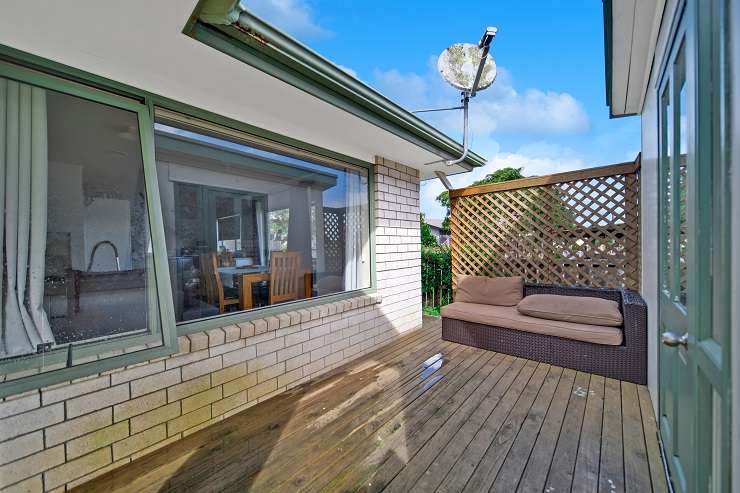The South Auckland family who attempted to auction their house using Bitcoin in July, have finally sold their house – but not for the challenged crypto-currency.
Despite nearly nine months of the vendors strategising how to use crypto-currency in a New Zealand property auction – it would have been a first – the three-bedroom home on Tennessee Avenue was passed in at the auction in mid-July, after four bidders failed to reach the desired price.
Ray White Manukau co-owner Tom Rawson, who marketed the property with William Vaea, said there were multiple conditional offers on the table immediately after the auction and the owners accepted one for $680,000 which settled this week.
The sellers, Altar and Nardia Peni, told OneRoof that despite changes in the value of both Bitcoin and the local housing market since they first got the idea in October last year, they still plan to put their sale profit into the crypto-currency.
Start your property search
“You’ve got to think unconventionally, we’ll put Bitcoin aside for our family future. The dollar is going down with inflation, but we’ll be able to buy a bit more,” Altar Peni said.
Rawson said that while a year ago as the market was peaking, the cross-lease house would have fetched around its CV of $810,000, in the same period of time the value of Bitcoin plunged. It dropped from a high of US$69,000 per token in November to US$25,500 ($40,180) in June this year, according to Bloomberg.
“So that means they actually end up with more Bitcoin. Effectively, our vendors were selling one asset class – their house – and buying another asset – Bitcoin,” Rawson said, adding that he had initially counselled the family not to go down that route, but they stayed keen through the whole year after family issues delayed their campaign.
Rawson said the auction was conducted with a lawyer who specialises in Bitcoin in the room to help buyers, but the four registered bidders were all there to pay in dollars.
“The auctioneer announced the spot price of Bitcoin before the auction, but called in New Zealand dollars.

While house prices dropped in the year it took to sell the house, Bitcoin dropped even more, so the sellers are happy with their exchange. Photo / Supplied
“We got very close – $660,000 – but our vendors saw they could get more going with a conditional buyer, as we had multiple buyers waiting [for the auction to pass in],” he said.
Vaea said that the best news was that the buyers were first-home buyers, a young family who bought their property with the help of Kainga Ora’s buyer scheme.
The Peni family is still pleased with the outcome.
“Some people didn’t know about Bitcoin, they didn’t get it. But Bitcoiners understand Bitcoiners, there’s a community around,” Nardia Peni told OneRoof.
Altar adds: “We had the founder of a Bitcoin school in Australia in Auckland, and other people in Australia saw the article.
“Here we’re still early, and I guess we found that out. You’ve got to try to convince people to jump on board,” he said
Peni said that he had tapped crypto law experts Patrick Wilson, Paul Connolly and James Cochrane, from law firm Stace Hammond, after seeing Cochrane talk about non-fungible tokens in art (NFTs are a form of digital assets).
Matt Paget, chief operating officer of blockchain ventures and trading company Techemy, and Rory Manchee, chief executive of Brave New Coin, the Techemy subsidiary that provides the pricing indices on the crypto market, also lent their expertise. The couple said they are now working with Casa, a secure bitcoin storage service.
The sale comes as Rawson said auction rooms are starting to look packed again. “Before the long weekend we sold 14 out of 18 properties and next week we have 17 auctions booked. On some non-auction properties we’ve had up to eight offers.”
He said that the market now is transacting for the usual reasons of “genuine need, not greed", although the slow pace of banks approving finance has prevented many keen buyers from being ready to bid at auction.
“Vendors are smart. They’d rather get less money, but settle in two weeks’ time rather than a higher price, but not see that money for six months. Everything has got to line up.”


















































































